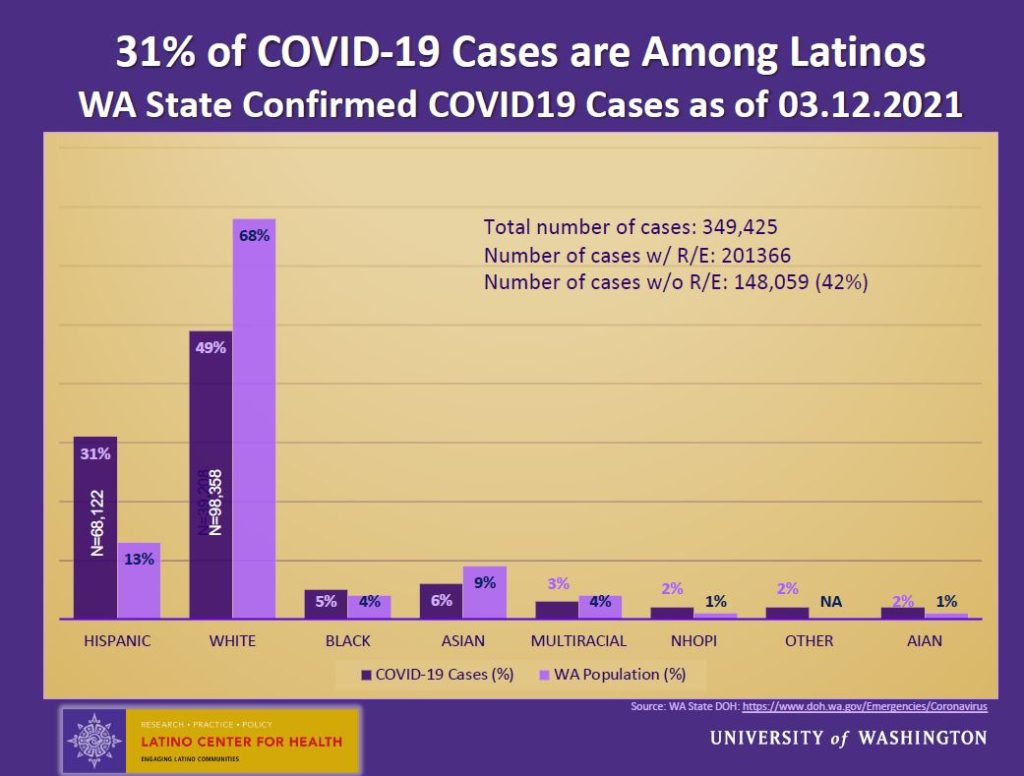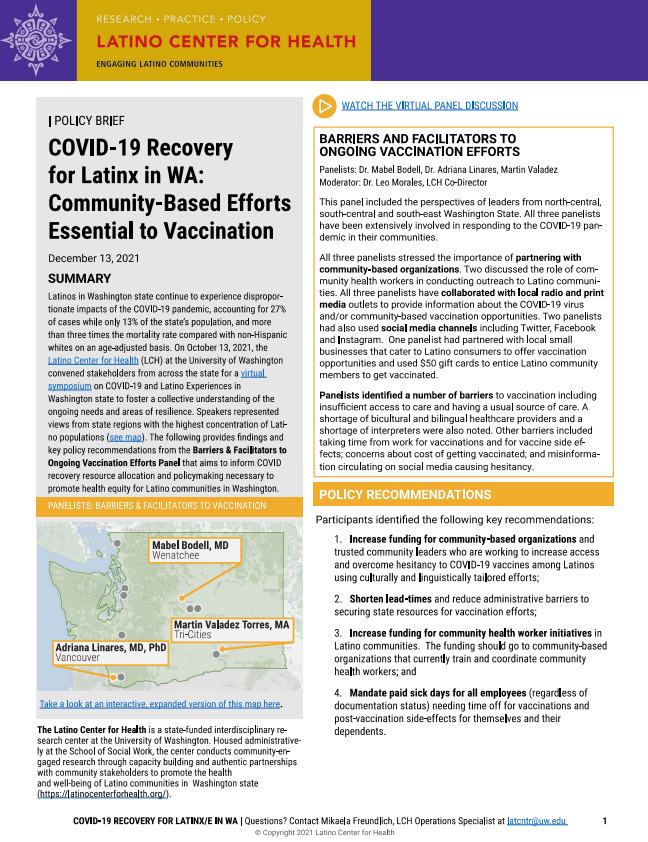A new survey finds increased prevalence in depression and anxiety among Latinos in Washington State. LCH calls for policymakers to recognize this issue as critical and make short- and long-term changes to improve access to mental healthcare.
University of Washington, Seattle: The prevalence of depression and anxiety among Latinos in WA state increased during the COVID-19 pandemic, according to a new survey study conducted by the Latino Center for Health. As part of a COVID-19 policy brief, LCH reports 13% and 16% of respondents scored “depression likely” and “anxiety likely”, respectively. Additionally, 9% of participants’ scores indicate clinically significant comorbidity of anxiety and depression.
This policy brief is part of LCH’s COVID-19 policy brief series. LCH researchers used data from the “Understanding Washington Latinos’ Experiences Around COVID-19” survey developed by the center in partnership with Sea Mar Community Health Centers.
Latinos are disproportionately affected by stressors that negatively impact their mental health. Out of all survey respondents, 39% indicated that they were unemployed, 41% reported that they were uninsured, and 57% reported having completed a high school education or less.
“COVID-19 has illuminated and exacerbated disparities in anxiety and depression impacting Latinos. WA state must do much more to provide accessible, and culturally and linguistically appropriate mental health services for all Latinos in our state, including rural and urban, insured and uninsured, migrant and non-migrant, and immigrant and non-immigrant,” said LCH co-Director Leo S. Morales, MD, PhD, principal investigator of the study.
Overall, scores for “depression likely” and “anxiety likely” were higher among younger (18-30 years old) and older participants (>65 years old), women, divorced, those with higher education, and those with lower incomes.
This policy brief contains a list of recommendations to improve and promote access to culturally and linguistically responsive mental health services to urban and rural Latinos in Washington state. Some short- and long-term recommendations include:
- Make temporary waivers for telehealth (telemedicine and telemental health) services permanent.
- Increase access to evidence-based, culturally responsive telephone Cognitive Behavioral Therapy (CBT) depression care.
- Incentivize college and university educational programs across the state to strengthen and enhance their equity curriculum through developing and implementing Latino mental health curriculum and tracks.
_____________________________________________________________________
Sea Mar Community Health Centers, founded in 1978, is a community-based organization committed to providing quality, comprehensive health, human, housing, educational and cultural services to diverse communities, specializing in service to Latinos in Washington state.Sea Mar’snetwork of services includes more than 90 medical, dental, and behavioral health clinics in WA state and a wide variety of nutritional, social, and educational services.


